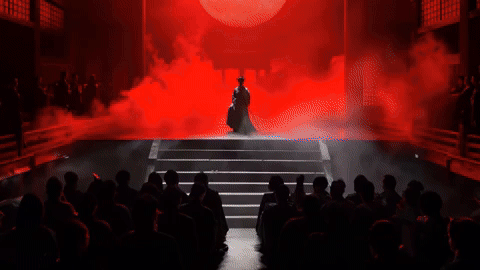The Beijing Internet Court recently handed down a decision that grants copyright protection to an image created with generative artificial intelligence — the first of its kind in China.
The plaintiff surnamed Li filed the lawsuit in May against the defendant surnamed Liu alleging copyright infringement and violation of information network transmission rights. Li, who created a series of pictures utilizing Stability AI’s Stable Diffusion and posted on Chinese Instagram-like social media platform Xiaohongshu, accused Liu, a blogger, of using his AI-generated artwork without permission in a post as well as removing the watermark on the original picture.

Recognizing the “originality” of the plaintiff’s AI-created picture and his “intellectual input” in the creative process, the court found the image in question was subject to copyright. The defendant Liu was ordered to issue a public apology and pay the plaintiff 500 RMB (around 70.5 USD) in economic damages.
The court ruled the plaintiff was the copyright owner, giving his role in “configuring the AI server and making the final selection of the image.” The picture, although generated by AI, was deemed to be based on his intellectual input and convey personalized expression.
AI systems — not considered legal entities and lacking free will — are essentially “tools” for creation, while human inputs remain at the core, the court noted. It also denied copyright ownership to the AI model designers who were “not involved in the process of producing the particular image.”
“AI-generated images should be recognized as works protected under copyright law, as long as they reflect people’s original intellectual investment,” the court said.

The court’s finding stands in contrast to a previous decision made by the U.S. Copyright Office in February. The office said images created by the AI platform Midjourney were not eligible for copyright protection because they were “not the product of human authorship.”
In the backdrop of the burgeoning AI industry and the skyrocketing demand for AI usage in various fields, the lawsuit received wide attention and heightened controversy over the copyrightability of AI art. The court hearing was livestreamed and attracted more than 170,000 viewers.
“China is adopting a pro-growth, business-friendly stance in its AI regulation,” said Angela Zhang, associate professor of law and director of the Center for Chinese Law at the University of Hong Kong.
This decision aligns perfectly with my earlier forecast: China is adopting a pro-growth, business-friendly stance in its AI regulation. For a deeper dive into my perspective, check out my latest opinion https://t.co/hwGRWtyywZ . #AIRegulation #ChinaTech“
— Angela Zhang (@AngelaZhangHK) November 29, 2023
“While China was an early mover in regulating generative AI, it is also highly supportive of the technology and the companies developing it,” Zhang wrote for Project Syndicate in October.
Li Zhenwu, a Shanghai-based lawyer, commented on the Twitter-like platform Weibo that the court had already explained its reasoning very carefully, devoting a large portion of the judgment to proving the plaintiff’s contributions in the process of creating.
“An individual case doesn’t hold the significance of identifying certain trends,” Li said. “The case is different from instances where AI generates works directly.”
Cover image via TheKonG / Shutterstock.


















